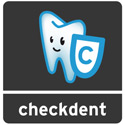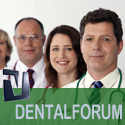
Should cavities in milk teeth be removed?
Dentists keep finding cavities in children’s milk teeth and telling parents that it’s best to do nothing at all.
This is wrong, because
- Cavities are caused by bacteria which can spread to and damage other healthy teeth
- Cavities destroy teeth, which makes the other teeth squeeze closer together, so that the tooth sector gets smaller. But this tooth sector acts like a kind of bracket which stimulates the growth of the jaw. If this growth is slowed down and the remaining teeth end up crowded together in an adult’s mouth, this is usually caused by cavities in milk teeth
- Permanent teeth that are coming out can be affected
- Cavities often cause teeth to die out, which leads to inflammation in the bones. Abscesses and fistulas result
Cavities in milk teeth should always be removed, and if several teeth are affected, then treatment should be performed under a general anaesthetic in order to keep the child from getting traumatized.
As a parent, you should make sure that your children improve their brushing habits, as cavities in milk teeth are a sign that children are not brushing properly:
- Children need their parents’ help in brushing their teeth twice a day until the age of ten. Only at this age does a child have the fine motor skills that enable it to brush its teeth properly on its own
- You should give your child water to drink, not juices containing sugar
- Make sure the toothpaste used does not taste too good, otherwise children won’t want to spit it out
- If the child throws a tantrum – don’t worry, all children do – stay on the ball, and if necessary brush „by force“. Use the same techniques as when you teach your child not to cross the street on a red light, go ahead and brush the child’s teeth yourself! Only you know the dangers of not brushing your teeth, your child doesn’t …
- Let your child watch you while you brush, hum songs or whatever to show your child that you’re having fun
- Lay down rules for brushing just like you do for eating – no playing with toys while at table or at the sink!
- Small children respond well to suggestions such as „Let’s scare off of the cavities monsters“ or „Let’s help the little tooth sprites clean your teeth“, this helps make brushing more fun
- Get plaque tablets to check how well your children brush
VN:F [1.9.22_1171]
Rating: 0.0/5 (0 votes cast)
VN:F [1.9.22_1171]







